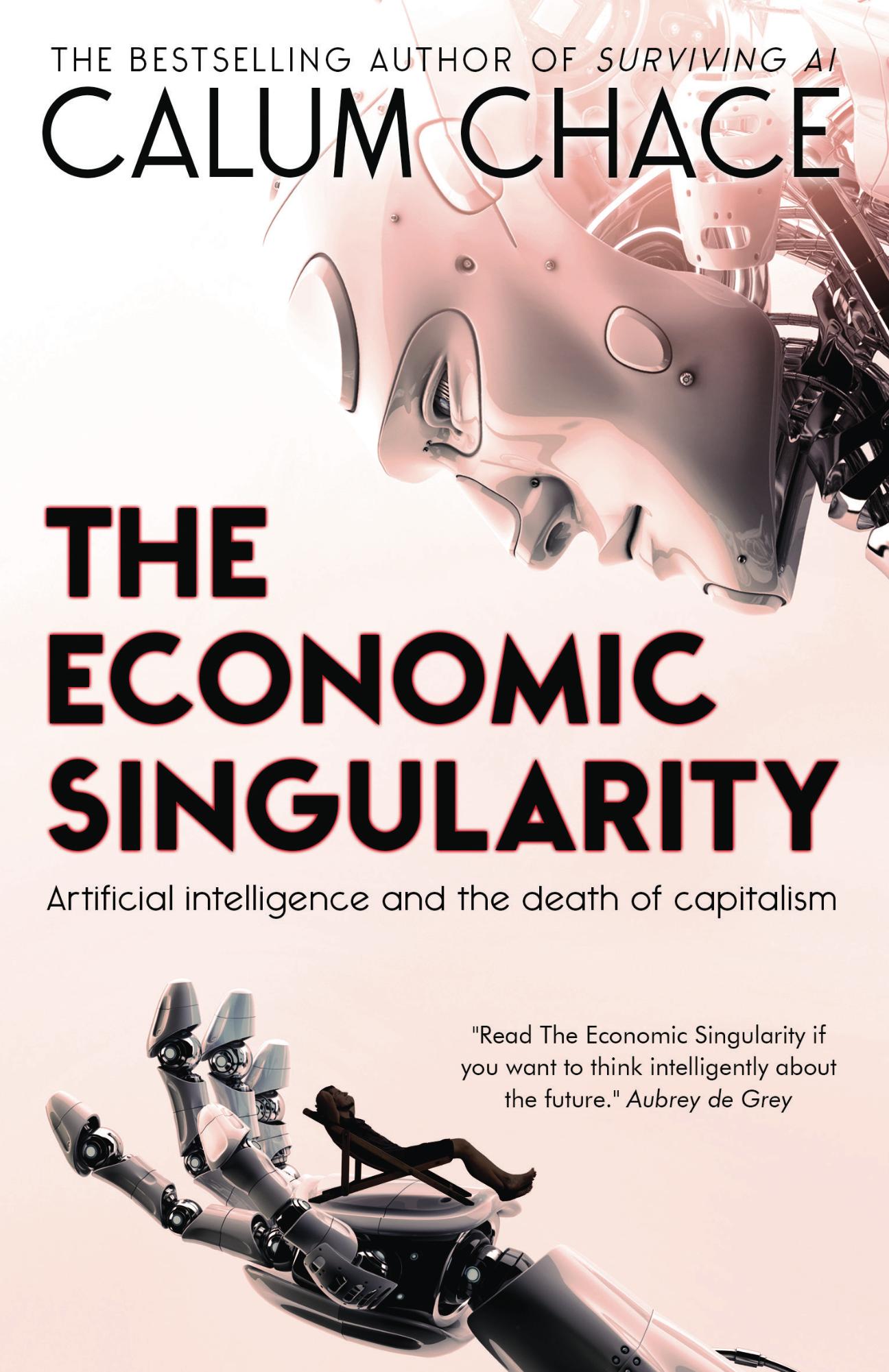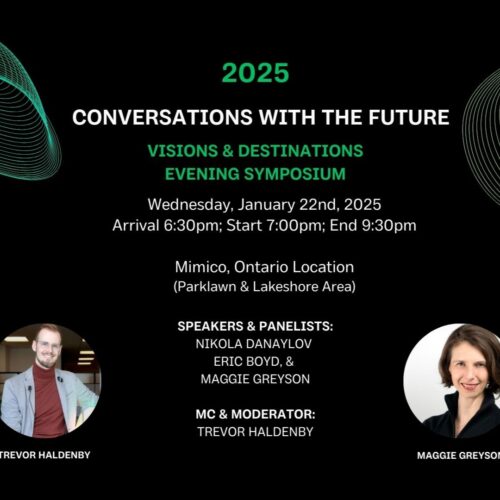The Economic Singularity
 My new book The Economic Singularity argues that in the next few decades most humans will become unemployable because machines (AI systems plus their peripherals, the robots) will be able to do anything that we can do for money cheaper, faster and better. And unlike us, their capabilities will be improving all the time. At an exponential rate, if not faster.
My new book The Economic Singularity argues that in the next few decades most humans will become unemployable because machines (AI systems plus their peripherals, the robots) will be able to do anything that we can do for money cheaper, faster and better. And unlike us, their capabilities will be improving all the time. At an exponential rate, if not faster.
This is far from outlandish thinking to most readers of this blog – in fact it may even be orthodoxy here. But it is still a minority view in the world at large. Most traditional economists would say it is the Luddite Fallacy. Nedd Ludd (who probably never actually existed) gave his name to bands of frightened, angry men who smashed machines in England during the early industrial revolution. They weren’t advancing any sophisticated economic argument – they were simply trying to defend themselves and their families from imminent starvation.
But economists point out – rightly – that so far, automation has not caused lasting unemployment. So far, it has made production processes cheaper and more efficient, expanded the productive capacity of the economy, created more wealth, more demand and more jobs. Mainstream economists believe the new wave of automation by AIs will do the same.
Maybe they are right: the truth is, we just don’t know yet. But it seems to me unlikely. Machines are now able to recognise and classify faces better than humans. They are catching up fast in speech recognition and they are also making rapid progress with natural language processing. These are not easy tasks for AI researchers, and continued progress is not guaranteed, but it does seem overwhelmingly likely. These capabilities are what most people rely on to earn their daily bread – service industries now comprise by far the largest part of most developed economies. Robots are also improving dramatically quickly, and it is hard to see how most manual jobs in factories, warehouses and elsewhere will still be done by humans a couple of decades from now.
If and when machines do all these things better than us, how will we all earn a living?
Mainstream economists argue that we will work ever more closely with machines, but we will always bring uniquely human things to the party. Those uniquely human things are usually some combination of creativity and empathy. This combination of man and machine is sometimes described as a centaur, a term borrowed from modern chess, and invented by Gary Kasparov, the brilliant (human) chess player who was famously and controversially beaten by IBM’s Deep Blue in 1997.
Unfortunately, most of us are not exceptionally creative in our daily jobs, and it is not true to say that computers cannot be creative. Creativity is the combining of two of more ideas in a novel way, and it is not true that you have to be conscious or human to do that. The DeepMind system which taught itself to play Atari video games (thereby establishing a price tag of half a billion dollars for itself) displayed creativity when it invented a new way to win at Pong. (If you haven’t seen the video it’s here.) Many AIs from Google and others have demonstrated creativity since.
Machines don’t have empathy, and probably won’t unless and until we create an AGI and it turns out to be conscious. Empathy is dependent on having feelings about another person, and that would seem to require consciousness. But machines can fake empathy incredibly well, and in many situations where we think we want empathy, we actually don’t. Machine therapists are proving surprisingly effective in many contexts, and robotic carers like the fake baby seal Paro are adored by many of their “patients”.
Traditional economists then go on to argue that even if machines do take all our existing jobs, we will invent heaps of new ones which we cannot currently imagine. Virtual reality landscaper, anyone? Dream wrangler? They argue this has happened before: the farm workers who moved to the city in the 19th century in search of work in the factory could not have imagined that his grandson would be a website designer – for obvious reasons.
Unfortunately, an analysis of US labour statistics don’t bear out the claim that we have transformed the job market by creating hosts of new categories of employment that didn’t exist before. 80% of the job categories listed by the Bureau of Labour Studies today existed back in 1900. More important, 90% of the people working in the US today are doing jobs which existed in 1900.
Maybe will invent scores of new jobs which only humans can do, but neither common sense nor past experience support that claim.
Many people here, who have thought about these ideas for years, would agree with this argument, but they don’t see it as a problem. They think we will arrive fairly painlessly at a situation of radical abundance, where everyone has a Universal Basic Income and can do more fulfilling things with their lives than being accountants and actuaries.
I agree that is the goal, and it is a future which can be truly wonderful. But I’m not convinced the transition from here to there will be plain sailing. I think we will probably need a new economy, and we haven’t even started sketching out what it might look like, nor how we might get there without massive social unrest.
That is why I think we are heading towards an Economic Singularity, and we have work to do.
About the author:
 Calum Chace is a writer of fiction and non-fiction, primarily on the subject of artificial intelligence. Aubrey de Grey said of his latest book, “Read The Economic Singularity if you want to think intelligently about the future.”
Calum Chace is a writer of fiction and non-fiction, primarily on the subject of artificial intelligence. Aubrey de Grey said of his latest book, “Read The Economic Singularity if you want to think intelligently about the future.”
His previous book, Surviving AI, is a review of the past, present and future of our most powerful technology. Ben Goertzel described it as “a great starting-point into the literature” and added, “It’s rare to see a book about the potential End of the World that is fun to read without descending into sensationalism or crass oversimplification.” Hugo de Garis said “you cannot afford NOT to read Chace’s book.”
Calum is also a regular speaker on artificial intelligence and related technologies and runs a blog on the subject at www.pandoras-brain.com
Related articles
- Venture Capitalist Albert Wenger on Basic Income and World After Capital
- Will technological unemployment impoverish us?
- Marshall Brain on Singularity 1on1: We’re approaching humanity’s make or break period
- Martin Ford on Singularity 1on1: Technological Unemployment is an Issue We Need To Discuss
- Will Work For Free: A Doc About Technological Unemployment
- Economic Possibilities for our Grandchildren by John M. Keynes








